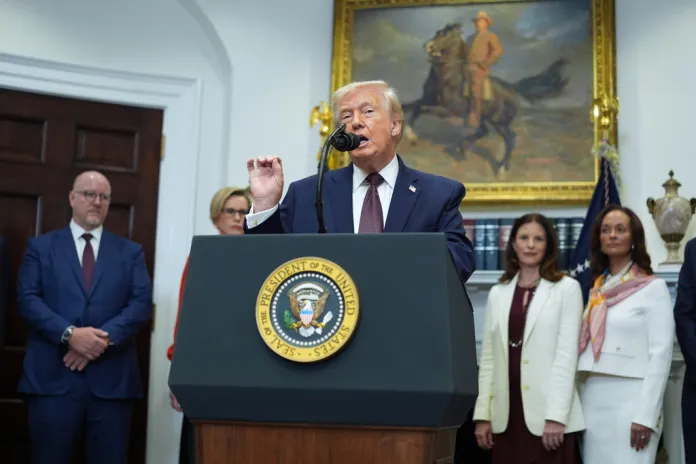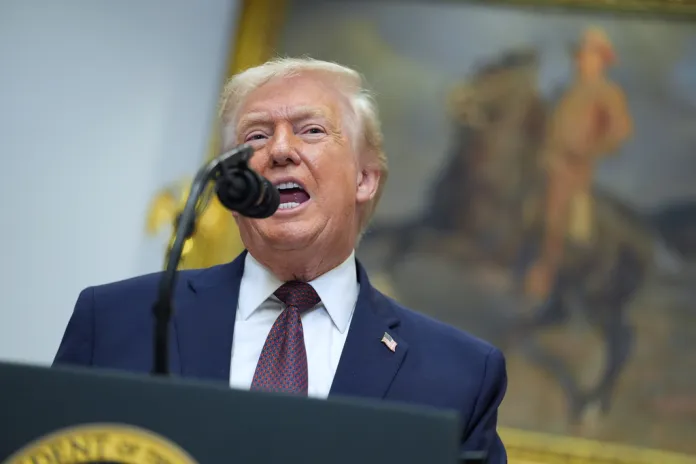Shrimpers applaud Trump trade deal – Washington Examiner
The article discusses the positive reaction of American shrimpers, especially the Southern Shrimp Alliance, to the Trump administration’s new trade tariffs on shrimp imports from Indonesia and Vietnam. These tariffs have been increased to 19% and 20%, respectively, up from a previous 10%, alongside commitments from both countries to enforce labor and environmental reforms. The agreements aim to combat forced labor,banned antibiotics,and illegal fishing practices. However, shrimpers warn that without similar action against India and Ecuador-two major exporters responsible for a large portion of U.S. shrimp imports-domestic fishermen may face continued economic harm. Despite falling wholesale prices, retail shrimp prices remain high, benefiting intermediaries exploiting unethical practices abroad. The Alliance urges the administration to finalize tariffs on india and Ecuador to protect U.S. shrimpers and believes that American shrimpers can significantly increase domestic production if given fair trade conditions.
Shrimpers applaud Trump trade deal
(The Center Square) – Shrimpers are praising the Trump administration’s newly announced tariffs on imports from Indonesia and Vietnam as a long-overdue correction to what it calls “counter-productive trade policies.”
“Too many American shrimpers have spent the last two seasons tied up at the dock,” said John Williams, executive director of the Southern Shrimp Alliance. “President Trump’s additional tariffs on major shrimp suppliers will enable our fishermen to increase their production and be an economic boon to coastal communities.”
The newly negotiated trade agreements impose 19% and 20% tariffs on Indonesian and Vietnamese shrimp, respectively, replacing the previous 10% rate.
The deals also include labor and environmental reform commitments from both nations and represent part of a broader framework to combat forced labor, banned antibiotics, and illegal fishing practices.
In a joint statement, Indonesia agreed to ban imports produced with forced labor, ease U.S. market access for key exports, and address labor and environmental enforcement gaps.
Vietnam, meanwhile, agreed to a 20% tariff on most exports, with even higher rates – up to 40% – for goods suspected of being rerouted Chinese transshipments.
But the group is warning that without swift action against India and Ecuador this year’s shrimp season may be another economic disaster for Gulf and South Atlantic fishermen.
The Alliance says the real threat remains unchecked: Indian and Ecuadorian shrimp continue to flood U.S. markets. Combined, the two countries exported over 1 billion pounds of shrimp to America in 2024, accounting for 64% of total imports.
So far in 2025, shrimp imports are up 11.4% year-over-year, with 70% of the additional 75 million pounds traced to just those two countries.
According to the Alliance, suppliers from Ecuador and India exploited the lower 10% tariff to flood the U.S. market ahead of expected trade actions.
“These foreign suppliers have exploited President Trump’s period for negotiations to slam this market and will not stop until substantial duties are imposed,” Williams said.
The Alliance is calling on the administration to immediately conclude negotiations and apply new tariffs against India and Ecuador to prevent a third straight year of economic devastation for U.S. shrimpers.
Other major markets – including the European Union and Japan – have moved to restrict shrimp imports from these countries. But the United States, the Alliance warns, remains the most open and vulnerable market.
Even as wholesale shrimp prices have collapsed, retail prices have stayed high. A 2024 report from the Sustainability Incubator found that U.S. consumers are still paying premium prices, with profit margins benefiting intermediaries who exploit unethical labor and production practices abroad.
“Counter-productive trade policies have outsourced our shrimp supply chain to countries engaging in forced labor, using banned antibiotics, and destroying the environment,” said Williams. “We welcome President Trump’s agreements with Indonesia and Vietnam, which include commitments to reform while imposing tariffs that offset unfair trade.”
Williams added that U.S. shrimpers have the capacity to increase production if given a level playing field.
THE ONE BIG BEAUTIFUL BILL ACT AND TRUMP’S TRADE POLICY WILL DO WHAT ‘BIDENOMICS’ NEVER COULD
“American shrimpers can easily increase the amount of domestic shrimp supplied to the U.S. market, providing more consumers with a superior-tasting, local shrimp,” Williams said.
The Alliance now hopes the administration will quickly finalize negotiations with India and Ecuador to complete what it sees as a necessary overhaul of U.S. shrimp trade policy.
" Conservative News Daily does not always share or support the views and opinions expressed here; they are just those of the writer."




